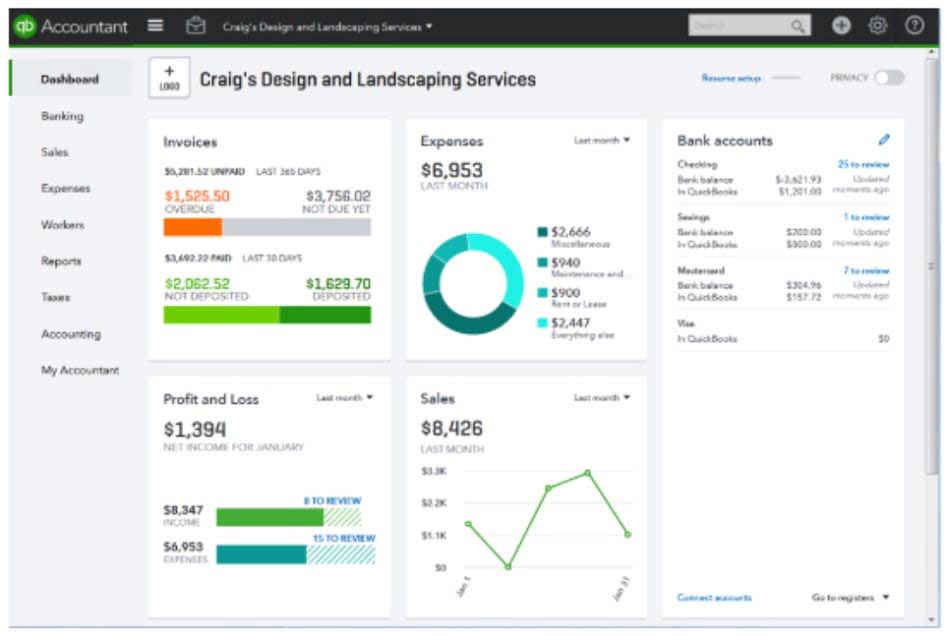
Financial accountants are also subject to compliance with government rules and regulations, such as the generally accepted accounting principles (GAAP), whereas managerial accountants are not. Throughout my career, I’ve worked with many professionals in managerial accounting — from managerial accounting cost accountants to CFOs. The primary focus of managerial accounting is ensuring that a company has all the information required to make sound decisions that limit risk and maximize profits. The ultimate goal of managerial accounting is to support intelligent decision-making.
What Types of Information Does Managerial Accounting Provide
If a customer routinely pays late, management may reconsider doing any future business on credit with that customer. Financial accounting must conform to certain standards, such as generally accepted accounting principles (GAAP). All publicly held companies are required to complete their financial statements in accordance with GAAP as a requisite for maintaining their publicly traded status. Most other companies in the U.S. conform to GAAP in order to meet debt covenants often required by financial institutions offering lines of credit.

When Financial Accounting Works Best
- Because the goal of professionals in these roles is to support the management team, ad-hoc reports can be presented in a way customized to suit the unique needs of the business.
- They are responsible for accurately recording every transaction that a company makes, whether it’s paying a contractor or buying a new machine.
- A managerial accountant may run different scenarios by the department manager depicting the cash outlay required to purchase outright upfront versus the cash outlay over time with a loan at various interest rates.
- Funds flow analysis aims at providing an answer to the change in financial position as compared to other accounting periods.
- This means a managerial accounting team needs to process a lot of information from multiple levels of a business and condense it into clear, actionable recommendations for the leadership team.
- Managerial accounting emphasizes the consideration of relevant costs—those that influence decisions—ensuring a focused and efficient decision-making process.
- Budgetary control is another technique used for controlling costs in running a business.
Our team of reviewers are established professionals with decades of experience in areas of personal finance and hold many advanced degrees and certifications. Ethical decision-making frameworks guide them in balancing financial goals with moral obligations. Managerial accounting emphasizes the consideration of relevant costs—those that influence decisions—ensuring a focused and efficient decision-making process. Also known as marginal analysis, this tool assesses the incremental costs and benefits of different alternatives. Managerial accounting facilitates the creation of budgets, offering a proactive approach to resource allocation, expense management, and goal-setting. As managers navigate the complexities of business, a solid grasp of fundamental managerial accounting concepts is crucial.
Which activity is most important to you during retirement?
- Managerial accountants use information relating to the cost and sales revenue of goods and services generated by the company.
- The job titles often differ in salary and responsibilities, though you’ll find some common tasks and skills in most jobs in managerial accounting.
- It also aids banks in evaluating whether or not a company is worthy of a business loan.
- This analytical tool aids in understanding the interplay between costs, sales volume, and profitability.
- Most companies don’t need every formula, but all small businesses can benefit from at least some management accounting reports.
Performance measures such as return on equity, debt to equity, and return on invested capital help management identify key information about borrowed capital, prior to relaying these statistics to outside sources. It is important for management to review ratios and statistics regularly to be able to appropriately answer questions from its board of directors, investors, and creditors. Managerial accounting is the practice of identifying, measuring, analyzing, interpreting, and communicating financial information to managers for the pursuit of an organization’s goals.
Financial Accounting Defined
External parties need to be protected from the incompetence of a firm as they are the main users of financial accounting information. Because of this, financial accounting procedures are required to fulfill certain standards set by regulatory bodies. These internal administrators include the general management of a company and the owner of a business to make better financial and operational decisions. Without prior managerial accounting, the business may decide to go for a cheaper product which may affect the quality of products and, ultimately, the profitability of sales. Budgets are extensively used as a quantitative expression of the company’s plan of operation.
What Is a Management Accounting System?

Companies are often looking for ways to gain a competitive advantage, so they examine a lot of information that might be hard to understand for outside parties. Performance discrepancies in business are variances between what was predicted and what was achieved. Using analytical techniques, management accounting help management build on positive variances and manager the negative ones. Our mission is to empower readers with the most factual and reliable financial information possible to help them make informed decisions for their individual needs. This team of experts helps Finance Strategists maintain the highest level of accuracy and professionalism possible.
Earn a bachelor’s degree.

Standards relating to managerial accounting vary, not just from company to company but, even between departments within a company. Financial reports and data can be presented in any way, as long as the individuals intending to use them are satisfied and can use them to make decisions. On the other hand, managerial accounting does not have to fulfill any form of general standards. Managerial accounting only has to fulfill internal standards and principles set to achieve business goals. Any set standard can be easily modified to meet the changing business environment and needs.
- This type of analysis tells where the flow of cash is coming from and how it is being used within a business.
- Future trends include advancements in technology, evolving business models, and changing regulatory landscapes, emphasizing the need for continuous learning in the field.
- Business managers collect information that feeds into strategic planning, helps management set realistic goals, and encourages efficiently directing company resources.
- The time I spent here was so worth it, because it really helps me to gain knowledge about managerial accounting.
- This analytical approach aids in more informed decision-making by identifying trends and patterns.
What are the challenges of management accounting?
- With this form of comparative analysis, the variance between the standard cost and actual cost is determined.
- This information plays a critical role in business decisions based on the company’s financial circumstances, forecasts and trends.
- Revaluation accounting involves the act of recording increases or decreases in the value of a fixed asset.
- It is a fundamental principle used in assigning value and revenue attribution to the various business units.
- It allows businesses to identify and reduce unnecessary spending and maximize profits.
- By analyzing the cost of each product, activity, and facility, among others, detailed and useful information is provided to the management of a company.


Deixe o seu comentário
You must be logged in to post a comment.